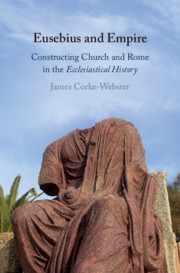Book contents
Chapter 6 - Christian Martyrs
from Part II
Published online by Cambridge University Press: 04 January 2019
Summary
- Type
- Chapter
- Information
- Eusebius and EmpireConstructing Church and Rome in the <I>Ecclesiastical History</I>, pp. 175 - 212Publisher: Cambridge University PressPrint publication year: 2019



